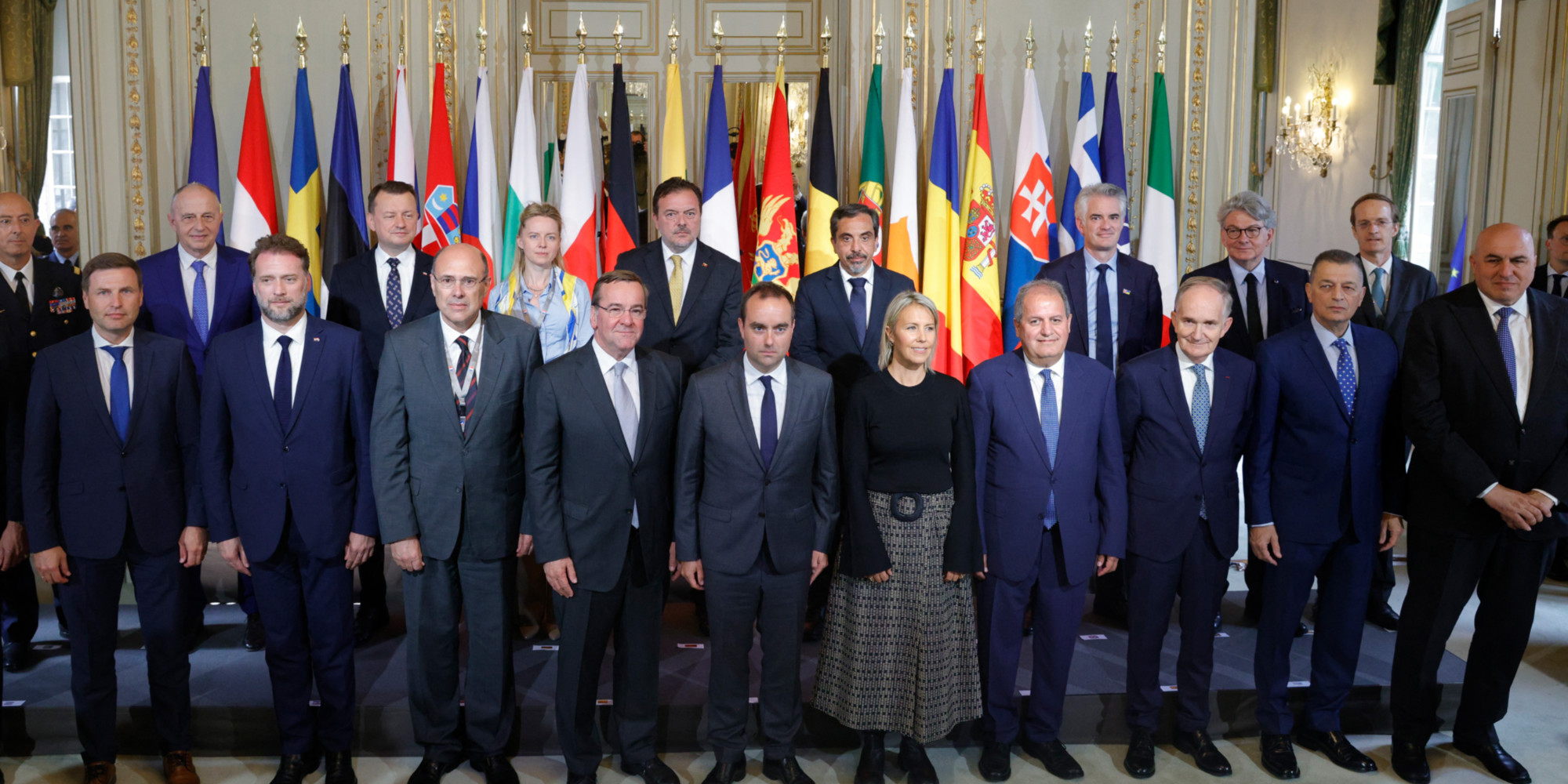France on Monday organized a ministerial conference on the anti-aircraft defense of Europe whose shortcomings the war in Ukraine has revealed, hoping to harmonize European positions while Berlin has launched a project that does not suit Paris. On the sidelines of the International Air Show in Le Bourget which has just opened its doors, the French Minister for the Armed Forces Sébastien Lecornu received in the afternoon in Paris some twenty of his European counterparts (Ministers and Secretaries of State), as well as the European Commissioner for the Internal Market, Thierry Breton. The German Minister of Defense, Boris Pistorius, will finally be present when he was initially to be represented.
This reflection on an “autonomous strategy for the defense of European airspace” is then intended to continue at EU and NATO level.
Competing with the German project
In terms of anti-aircraft defence, “we have two duties: to prepare for aid to Ukraine and the strengthening of the eastern flank (of NATO) over time” and “to return to the fundamentals that we experienced during the Cold War but which have regained a form of relevance and which we must update with regard to technological leaps, the various strategic alliances and the fact that the disruption of this world does not come only from the East”, underlined Sébastien Lecornu at the Paris Air Show. “From time to time we have to be able to ask ourselves for a few moments, not give in to the sirens of some purely industrial initiatives and ask ourselves questions of a safer, more strategic nature”, he argued.
This Paris initiative appears to be a reaction to the German project known as “Euro Sky Shield”, launched in October and which intends to rely on the German Iris-T anti-aircraft systems for the short range, American Patriot for the medium range and American -Israeli Arrow-3 for long range. This future “Shield of the European sky” has won over 16 NATO countries, including the United Kingdom, the Baltic countries and even Belgium, the Netherlands, Finland and Norway. Sweden has also joined the project. But he did not convince Poland. Paris, for its part, prefers to continue to bet on its own medium-range surface-to-air defense system SAMP/T MAMBA, while insisting on the problems posed by the German project. From a source close to the French executive, we warn against “a technologically unattainable shield project on a European scale”. The Elysée also stresses the need to take into account not only “anti-missile defense but also deep strikes and nuclear deterrence”.
Group order from Mistral
The nuclear issue is another sticking point with Berlin. “NATO is a nuclear alliance. But to what extent, by hardening your defences, are you accelerating a form of proliferation to accentuate the capabilities of penetration (of the adversary)?”, warned the Minister of the Armed Forces on Monday. “Germany is sovereign in its acquisitions. But we cannot consider that European efforts in this area are reduced to this announcement”, insists its ministry, recalling that “many other acquisitions are in progress in other country”.
The absence of threats and the mastery of the skies by Westerners since the end of the Cold War have led them to largely abandon the powerful anti-aircraft defenses which were to protect NATO from Soviet aviation. But the investments are coming: Berlin plans to devote 5 of the 100 billion euros of its special fund to anti-aircraft defense, Paris also 5 billion euros between 2024 and 2030. The European missile manufacturer MBDA has signed a contract in recent months around 2 billion euros with Paris and Rome to supply nearly 700 Aster missiles, notably equipping the Franco-Italian SAMP/T system, and another 2.2 billion euros with Poland to supply it with 44 launchers and several hundred CAMM missiles.
New announcements should conclude the conference on Monday evening, in the presence of the French president. A letter of intent must be signed between France, Belgium, Cyprus, Hungary and Estonia for the joint acquisition of very short-range Mistral missiles. Passing by the opening of the show, Emmanuel Macron promised that he would announce in the evening “important things about the SAMP / T”, in connection with Ukraine.
